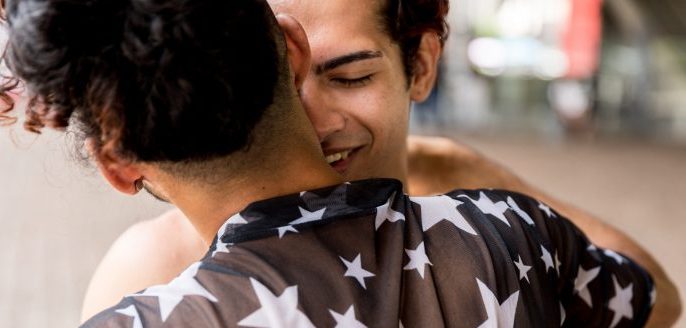Coming Out
So, you’re gay. Or queer. Or trans. Now what? First of all, congratulations! Learning more about who you are is something to be proud of. Once you know about this part of your identity, you’ll probably want to figure out when and how to share this part of yourself with the important people in your life. Remember that you can take your time to come out. You—and only you—get to decide when and how to share this information. Throughout your life, you’ll have to make the decision to come out over and over to new people. There’s no right way or time to start this process.
When, how, and if you come out is totally up to you. You’re the only one who knows the particulars of your safety, community, and resources. Think about how coming out could make your life harder, and how it may make your life easier. If coming out is unsafe or uncomfortable for you right now, your identity is still valid even if you don’t come out.
Who to Tell, and How?
Once you decide you want to come out, think about who you want to tell first. If you have friends or family who are queer or trans themselves or have expressed positive views about queer people in the past, think about telling them first. You can even test the waters by bringing up a gay friend or something from the news and watching how they react. Some adults, who want to create an affirming space for LGBTQ kids, like your teachers, librarians, coaches, or medical providers, may have rainbow stickers on their doors or other indications that they are a safe person to come out to. Your school or community may also have an LGBTQ support group you can access. Tell someone you trust first, and it’ll slowly get easier.
Acceptance and Safety
Different people have different experiences and difficulty levels around coming out. For many people, coming out is easier than expected! Many teens are accepted and embraced, and have the support of family and friends to help navigate the challenges of being newly out. Unexpected people can be supportive, and it can feel like a relief to be able to show friends and family your whole self. Coming out can open doors. You may find that the LGBTQ community in your town or school is more vibrant than you thought! For trans teens, coming out can allow you to access resources to aid your transition.
Unfortunately, transphobia, homophobia, and biphobia are still powerful forces. Some people live in circumstances where coming out is dangerous. Discrimination and violence against LGBTQ people is real. Bullying and harassment can happen at school if the environment is not accepting of LGBTQ students. Family may have trouble understanding or even be outright hostile towards your identity. This can make you feel ashamed of the identity that you’ve worked hard to discover. Coming out can be especially hard in your teens because you rely on family for food, shelter, and financial support.
The most important thing is to keep yourself safe. If you sense that coming out will put you in danger, you may want to wait until you are out of the house and supporting yourself financially. You may want to have a safety plan for school. You can still tell a safe adult or supportive friends who you trust to keep the information private.
Communities of Support
If the people around you are unsupportive, remember that there are many, many people in the world who will accept you as you are. There are many happy, healthy queer and trans adults who find communities where they are seen and supported. The concept of chosen family, or people who play significant roles in your life who are not related by blood, is an integral part of the LGBTQ community. If you need support, or simply to feel less alone, a Trans hotline or LGBTQ talkline can help connect you to resources.
This information is not intended to provide medical advice, professional diagnosis, opinion, treatment or services, only general information for education purposes only.


